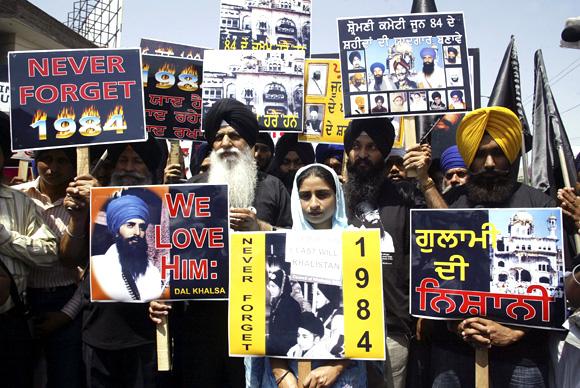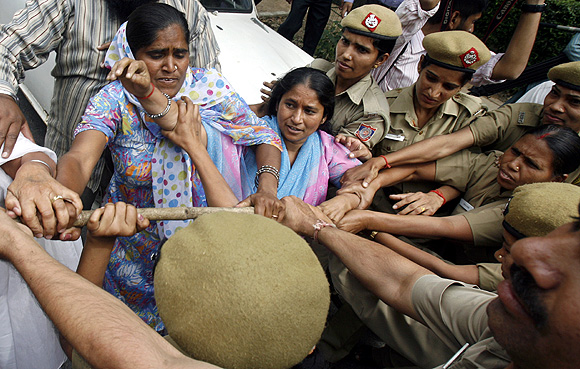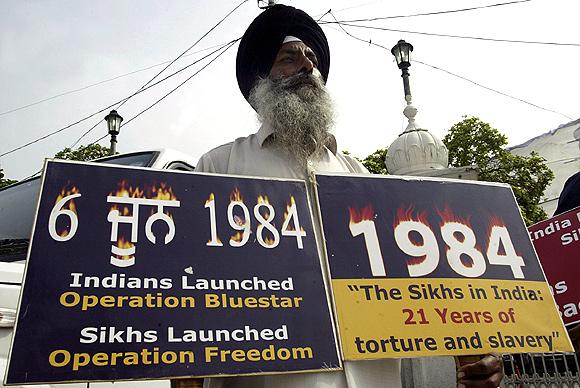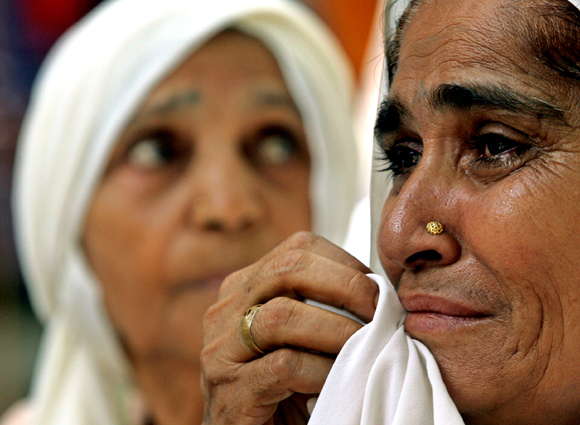
The Central Bureau of Investigation on Saturday told a court that the Delhi police, acting in a pre-planned manner during the 1984 anti-Sikh riots, kept its "eyes closed" to the violence.
Advancing final arguments in a 1984 anti-Sikh riots case, in which veteran Congress leader Sajjan Kumar has been accused of instigating a mob in the Delhi Cantonment area, CBI counsel R S Cheema said the city police "deliberately" did not act the way it was supposed to.
"This was a case where the police acted in a pre-planned manner and every policemen was keeping his eyes closed," Cheema told Additional Sessions Judge J R Aryan.
He said nearly 150 complaints were made regarding the riot incidents but only five FIRs had been registered by the police.
Click on NEXT for more...

"Whatever action was taken by the police was taken against the people who helped the Sikhs. The police did not take action against the main culprits. No policeman was recording complaints during the riots. They were not interfering to help the victims," he said.
Cheema said even the police officials who were defence witnesses in the case had said in their statements that they had not seen anything during the riots.
During the arguments, the court asked the prosecutor if the CBI has any "direct evidence" against Sajjan Kumar and the other five accused -- Kishan Khokkar, Girdhari Lal, Mahender Yadav, Balwan Khokkar and Captain Bhagmal -- to show they were instigating the mob to kill the Sikhs.
"Apart from the witnesses, do you have press reports or photographs published in the newspapers to show that Sajjan Kumar was addressing the mob? Do you have direct evidence against the accused," the judge asked.
Click on NEXT for more...

The CBI prosecutor told the court that they did not have such media reports but they had other direct evidences against the accused, which he would show to the court on April 2, the next date of hearing.
"We have direct evidence of conspiracy against them (accused)," Cheema said, adding that in today's hearing, he was only arguing on circumstantial evidence against the accused.
Sajjan Kumar and the other five accused are facing trial on the charge of inciting mobs against the Sikh community during the riots.
Advancing the arguments, the CBI prosecutor told the court about the nature of the case and said this was not a case of personal enmity.
"This was not a case of personal enmity. This was a pogrom. It was a case of massacre where people of a particular community in the society were targeted. People of the Sikh community were eliminated," Cheema said.
Click on NEXT for more...

Six Sikhs were allegedly killed in the Delhi Cantonment area during the riots that had broken out after the assassination of the then prime minister Indira Gandhi on October 31, 1984.
The case against Sajjan Kumar was registered in 2005 on a recommendation by Justice G T Nanavati Commission. The CBI had filed two charge-sheets against him and other accused in January 2010.
The trial court had in May 2010 framed charges against Sajjan Kumar and five others under Sections 302 (murder), 395 (dacoity), 427 (mischief to cause damage to property), 153-A (promoting enmity between different communities) and other provisions of the IPC.
The Delhi high court had earlier asked the trial court to expeditiously dispose of the case.
Sajjan Kumar is facing prosecution in three separate cases, in which he has been accused of inciting a mob against the Sikh community during the 1984 riots.
Click on NEXT for more...
...